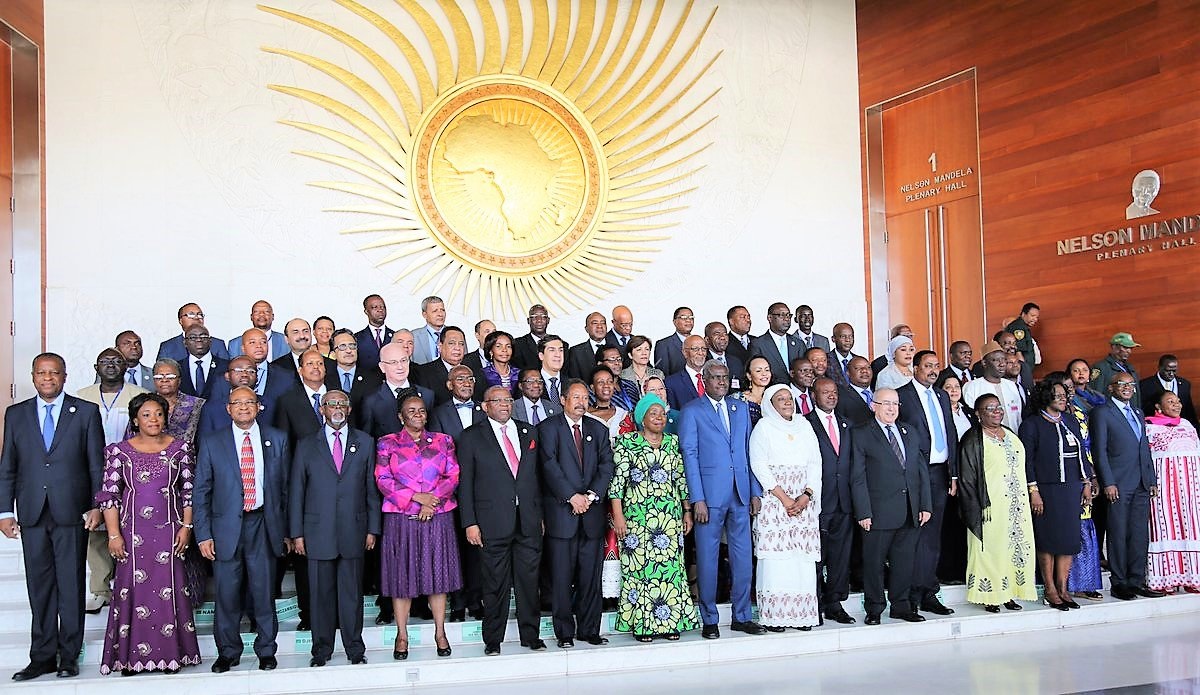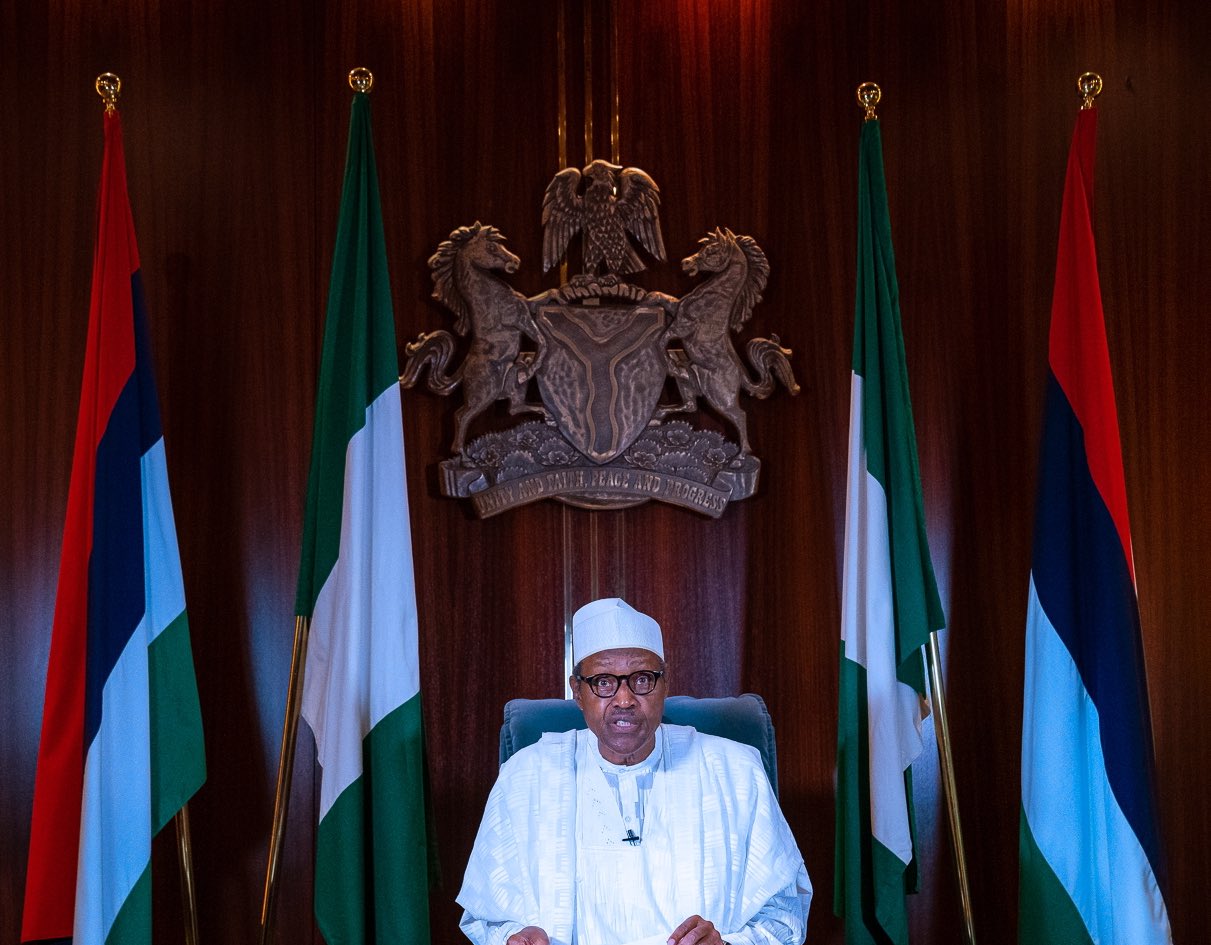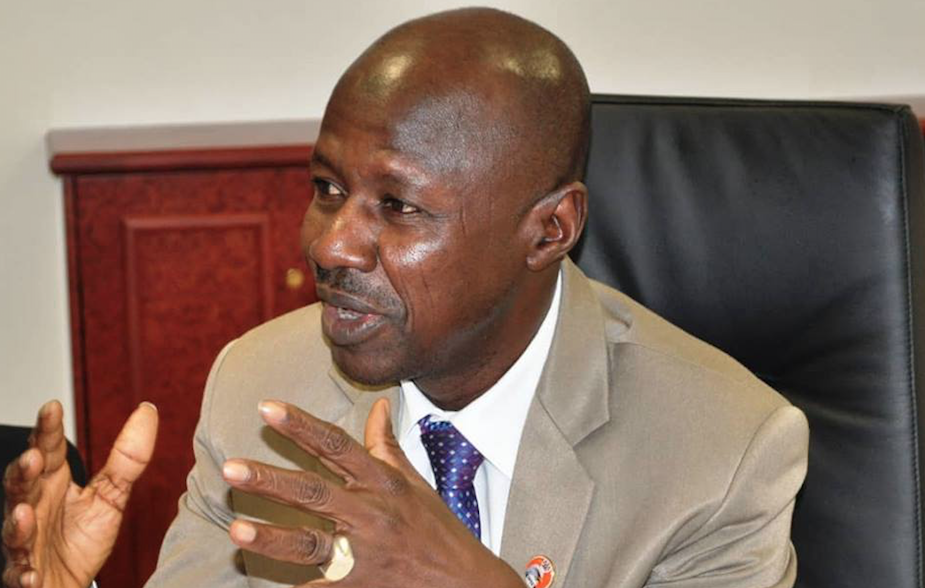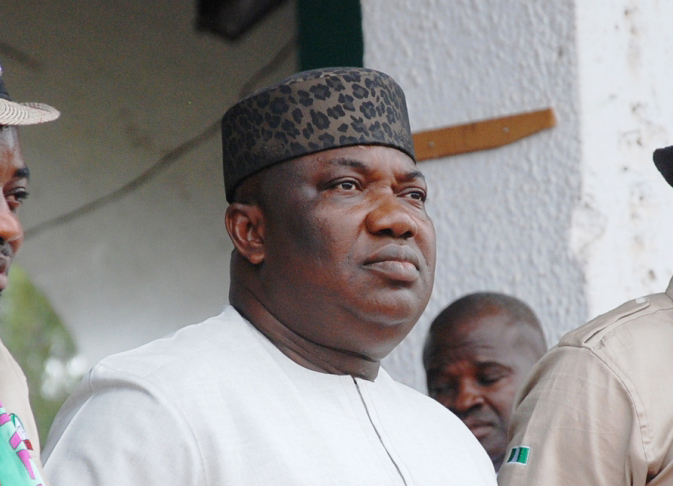BY CHUKWUEMEKA UWANAKA
Another Africa Day was marked on May 25, 2020. The day represents the anniversary of the founding of the Organisation for African Union (OAU) in 1963, the primary multilateral organization in Africa that precedes the current African Union (AU). Multilateralism as a concept represents the attempts by countries to collaborate in solving challenges or attaining goals. As it is usually the case with anniversaries, reflections are carried out, to x-ray and engage in some soul searching and assessment of goals, aims and objectives as applicable. In the case of Africa, the aims and aspirations that heralded the OAU and AU provide the benchmarks upon which reflections are to be made.
The objective of the organization has been the development of Africa politically, economically and socially. In some details, the objectives as spelt out are to promote solidarity, integration, economic wellbeing, good standard of living, human rights, peace and security among the people and countries of the continent. With success in political independence for many African states secured, the complementary aspiration has been the socio-economic development of the people of Africa. A review of the Human Development Index (HDI) of the United Nations Development Programme (UNDP) which uses education, health and economics to assess countries shows that the majority of African rank poorly on the index. Security, which is the primary responsibility of government, has African countries also ranking poorly, as demonstrated on the Fragile States Index (FSI), with many of them ranking among the more fragile countries. Africa constitutes 17 percent of world population but only 3 percent of global GDP. On indexes that measure human rights, many African countries also rank poorly.
The successes recorded by the European Union (EU), which constitutes 5.8 percent of world population but 25 percent of global GDP, in promoting the socio-economic and political development of European member states after the destructions of World War II, in which Europe was the centre stage, represents some of the heights that Africa should have attained since the founding of OAU. The similarities between both institutions also include their changes over time in nomenclature, with the EU first starting as European Coal and Steel Community (ECSC), European Economic Community (EEC) and the European Union in 1993 with the coming into force of the Maastricht Treaty. With the EU demonstrating how multilateralism can act as a force for good, the questions then arises – which other multilateral approaches can be adopted by African countries to quicken the pace of development in the continent?
One of the marked differences between EU and the AU is in membership pattern. While the AU has really been an ‘all comers affair’, with membership for every country in the African continent, EU membership on the other hand comes with certain terms and conditionalities that aspiring and existing European states must meet. As contained in the Presidency Conclusions of the Copenhagen European Council of 21-22 June 1993, they include stable institutions that guarantee democracy, the rule of law, human rights and respect for and protection of minorities, the presence of a functioning market economy, as well as the capacity of the economy to cope with competitive pressure and market forces within the Union. Among other obligations, the intending country should adhere to the aims of political, economic and monetary union.
Advertisement
With Belgium, France, Italy, Luxembourg, the Netherlands, and West Germany constituting the inaugural countries, the EU became ‘good company’ that other European countries aspired and worked towards being a part of, including repeated attempts by the United Kingdom (UK) best characterized by the ‘empty chair crisis’. From its inaugural six countries, the EU grew to 28 in 2013, and though the UK voted to leave the union in 2016 under what is called the ‘Brexit’ vote, the four years of Brexit negotiations underscores the importance the UK still attaches to the EU. Brexit has also not deterred other European countries such as Turkey with GDP of $852 billion from aspiring to EU membership. Other developed European countries such as Liechtenstein, Iceland, Switzerland and Norway have sought means of relating with the EU through the European Economic Area (EEA) and the European Free Trade Association (EFTA). The EU, which was the epicenter of World War II and constitutes very diverse people, currently, has no conflict within its borders.
Some other thought on the EU. The Council of Europe, which constitutes almost all European countries, co-exists with the EU. The inaugural member states of what is now the EU, decided to form the organization for reasons that included the inability of the Council of Europe to attain some of the integration expectations of essentially the leading economies of Europe.
Coincidentally, the conditions for EU membership, largely liberal democratic principles, are similar to the aspirations of the AU. The other question and concern will then be to ascertain if a similar approach can be adopted in Africa, especially given that the AU already exists. With certain feasible conditions, a radical approach can be adopted, where the leading economies in Africa can form a new organization, and set certain political, economic and social standards which aspiring countries will have to meet, to become a member of the new multilateral organization. In essence, a realist approach towards the establishment of a new multilateral organization in Africa that takes preeminence over the AU.
Advertisement
The leading countries will be the bigger economies of their AU recognized Regional Economic Communities (REC) such as Nigeria, Cote d’Ivoire and Ghana from West Africa; South Africa and Botswana from Southern Africa; Kenya and Rwanda from East Africa; Egypt and Morocco from North Africa; and Cameroon from Central Africa. The proposed new organization will have attractive membership benefits such as direct aviation links, visa free travel, a large economic bloc for free trade, and possibly a single currency that will prove attractive enough for other African countries to desire join, just as European countries aspire to EU membership. The RECs were established under the Abuja Treaty of 1991 that established the African Economic Community (AEC), and the RECs are the building blocks of the AEC. The focus on the leading economic countries flows from the disappointment of political independence not providing the expected economic dividend. The relative inability of RECs to meet modest mandates of regional integration according to a UNECA study further underscores the need for another multilateral approach towards development in Africa. The Arab Maghreb Union (AMU) for example has hardly met since 2008, and the current crisis bedeviling Libya, one of its member states, has other non-AMU members such as Russia and Turkey as the primary participants. Morocco, one of the AMU member states made attempts to join the West African REC, by formally applying to join the ECOWAS on February 24, 2017.
The ability of leading countries such as Ghana led by Kwame Nkrumah in establishing the OAU, and Muammar al-Gaddafi in the creation of the AU from the OAU, are examples of the feasibility and practicability of creating a new multilateral organization. Therefore, a new organization can be created. What will however require a bit more effort is the ability of the proposed ‘leading countries’ to attain the economic, political and social status that they would set for other African countries who desire membership of the organization.
Given the reality of the African Continental Free Trade Agreement (AfCTA), as well as the solidarity that exists among AU countries, with all of its appearances, the establishment of another multilateral organization by countries that should work through their RECs in delivering the promises and mandate of the AU and the AEC is bound to be perceived as radical in nature and too disruptive. The praxis of this largely economically driven proposition can also be challenged by some of the leading economies in the continent not being very good liberal democracy examples, though the adoption of this approach can provide the needed push for them to sustainably reform. If the experience of some of the RECs on free movement and trade are anything to go by, then caution is advocated on how the practicality of the AfCTA. The larger question should however be- is there any non-radical approach to resolving the developmental challenges, some of them seemingly endemic in Africa?
Though political independence for all African countries has been identified as a major achievement of AU, rising concerns about the economic actions of China in the continent, that includes the construction of the AU Commission secretariat at Addis Ababa; as well as the role of some non-African countries in the activities of the African Development Bank (AfDB), can question the total independence ascribed to the continent. The proposed new organization, while encouraging beneficial trans-continental relations, will consciously prevent such scenarios from occurring within her institutions.
Advertisement
What then becomes of the AU after the new organization is created? Well, the proposed new organization can co-exist with the AU, as there is some precedence earlier cited. The existence of eight recognized RECs is evidence that another effective multilateral organization can exist in Africa. Also, some of the RECs such as Community of Sahel-Saharan States (CEN-SAD) and Common Market for Eastern and Southern Africa (COMESA) have overlapping membership, such as Nigeria in ECOWAS belonging to CEN-SAD; and South Africa in SADC belonging to COMESA- all recognized by AU. The difference however remains that while the AU remains ‘open’ to all African countries, the proposed new organization will have conditions for membership. A ‘New Africa’ is indeed possible.
Uwanaka is a policy and management expert wrote from Abuja and can be reached at [email protected]
Views expressed by contributors are strictly personal and not of TheCable.






